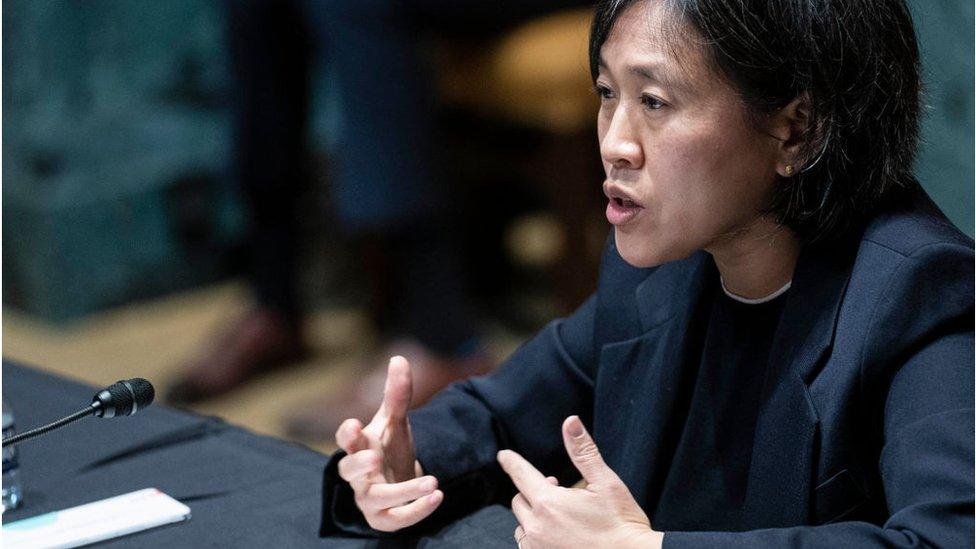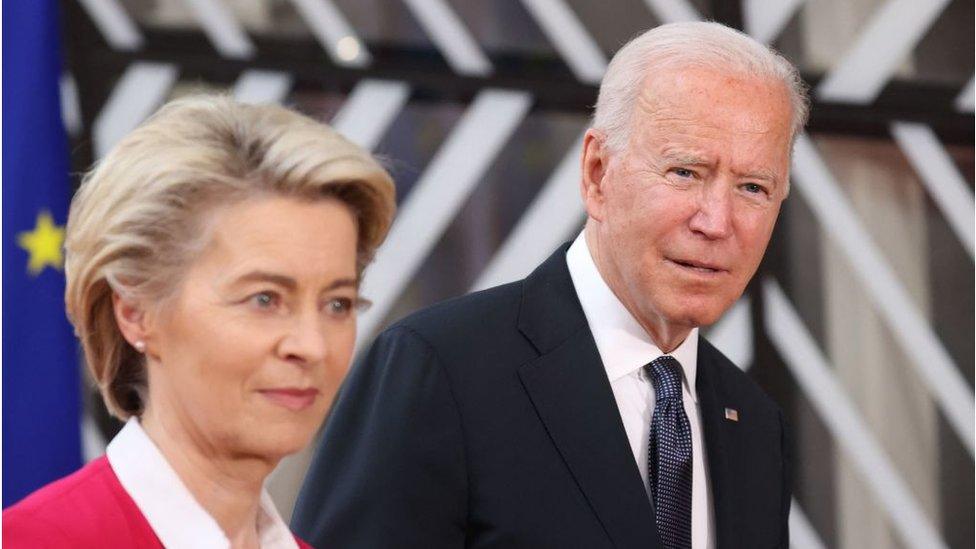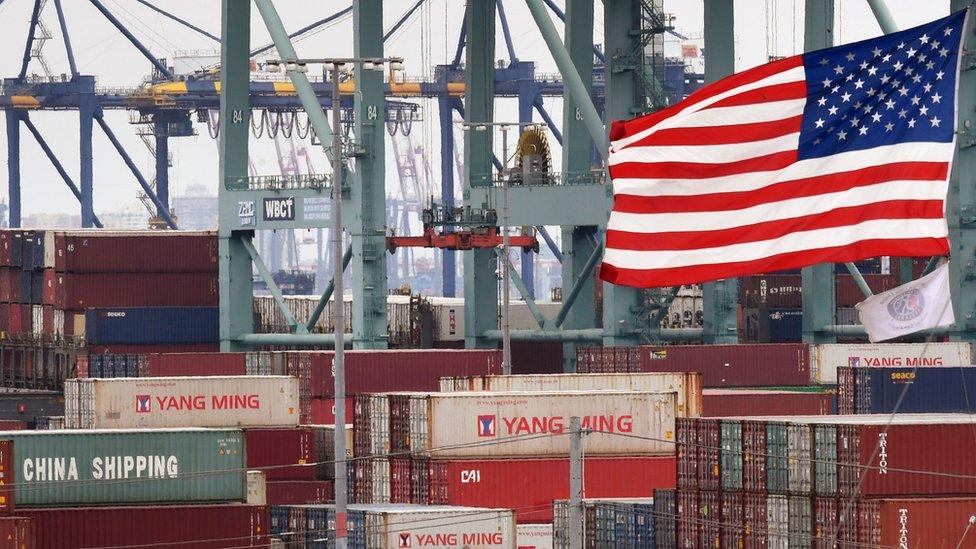US will 'take all steps necessary' to defend itself on China trade
- Published

Ambassador Katherine Tai, U.S. Trade Representative
The US has promised a new approach to trade relations with China, saying it will take "all steps necessary" to protect US interests "to the hilt".
Trade Representative Katherine Tai said she will seek new talks with Beijing over its failure to keep promises made in the first part of a trade deal struck with Donald Trump.
She also did not rule out imposing further trade tariffs.
Yet the US will drop a plan to make China reform its "non-market economy".
Instead, Ms Tai said America had to become more competitive in the face of China's growing economic might.
"For too long, China's lack of adherence to global trading norms has undercut the prosperity of Americans and others around the world," she told a briefing in Washington.
"We must defend - to the hilt - our economic interests... That means taking all steps necessary to protect ourselves against the waves of damage inflicted over the years through unfair competition."
Since 2017, the US and China have imposed tariffs on billions of dollars of each other's goods after Washington accused Beijing of blocking access to its markets and stealing American intellectual property.
Under a Phase 1 deal struck by Donald Trump, China promised to increase its purchases of US agricultural and other goods to rebalance the relationship.
But Ms Tai, who was appointed by President Joe Biden in April, said the Chinese government continued to "pour billions of dollars" into subsidising industries such as agriculture, steel and semi-conductors, making it impossible for the US to compete.
She promised to reopen talks with Beijing in the coming days and to "enforce" the commitments it made.
She also refused to rule out deploying further trade tariffs, saying "all available tools" remained on the table in protecting the American economy.
'Position of strength'
However, Ms Tai also said she would restart a process allowing US industries to apply for exemptions from trade tariffs on Chinese imports, which are paid by American companies. These, she suggested, at times harmed US economic interests.
She also said she would drop Donald Trump's Phase 2 deal - yet to come into force - which sought deeper reforms to China's state-backed economy, saying it was unlikely to succeed.
Instead, she said the US needed to work with allies through "bilateral and multilateral channels" to bring Beijing in line, while also investing more in its own competitiveness.
"As our economic relationship with China evolves, so too must our tactics to defend our interests," she said.
"Unlike the past, this administration will engage from a position of strength because we are investing in our workers and our infrastructure.
"And we must harness and leverage the talent of our people by investing in education and worker training."
She said the Biden administration would achieve this by investing in green energy and infrastructure, which would create new jobs. Yet the $1tn infrastructure bill and $3.5tn social spending plan that would pave the way for such changes remain stalled in the Senate.
Craig Allen, president of the US-China Business Council, told the BBC that Ms Tai's speech seemed to be "an invitation to restart negotiations between the two countries".
"As you know, they've been stalled since the [US presidential election] election. And I think that we'll see a little bit of engagement in the weeks ahead. But where that goes remains very uncertain. There was no clear roadmap or clear objectives for the next round of negotiations [in her speech]."
Related topics
- Published15 June 2021

- Published16 January 2020
